PROVINCETOWN — Brian Raiche was at the grocery store when he decided to reevaluate his relationship to the Catholic Church. Raiche was the priest at a parish in Averill Park, N.Y. Out shopping, he found himself face to face with a former parishioner who offered him some blunt advice, Raiche says.
“You’re in the wrong church,” she told him, adding that he seemed more like an Episcopalian than a Catholic. That encounter was in 2003. Raiche had been a priest for eight years, and when it came to disagreements about doctrine, his “primary concern,” he says, was the church’s restriction on leadership roles for women. “I empowered some women to preach, and that was frowned upon,” he says.
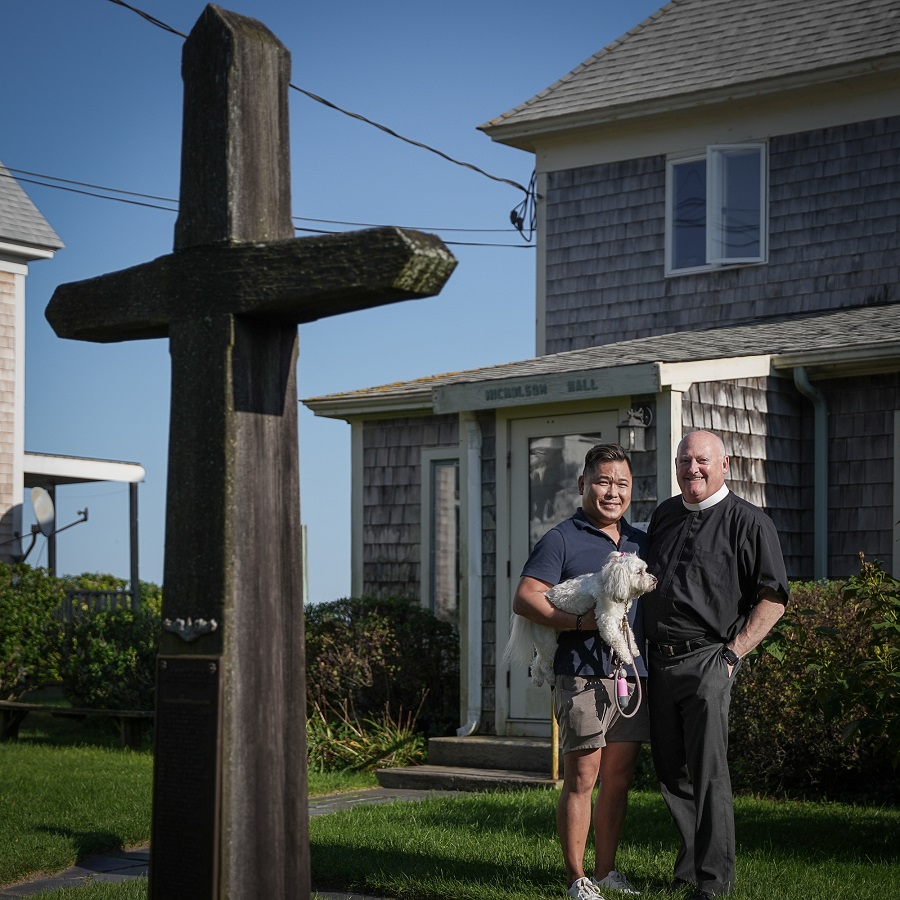
As an openly gay man, Raiche also found the church’s doctrines on sexuality problematic. All Catholic priests, regardless of their sexuality, are required to be celibate. “You couldn’t be married; you couldn’t be partnered,” says Raiche. “That can be pretty lonely.”
The church’s view of homosexuality is complicated. The catechism of the Catholic Church — a compendium of the church’s teachings meant primarily for bishops and priests — describes gay people as “objectively disordered.” At the same time, it says that those with “this inclination” face challenges, and so, “They must be accepted with respect, compassion, and sensitivity.” Meanwhile, “Homosexual persons are called to chastity,” it concludes. That would seem to make the priesthood an option for gay people, although Pope Francis’s predecessor, Benedict, reportedly was not on board with that.
Francis said during a 2013 news conference, “If someone is gay and is searching for the Lord and has good will, then who am I to judge?” The statement, though it seemed remarkable at the time, didn’t result in any change in church law.
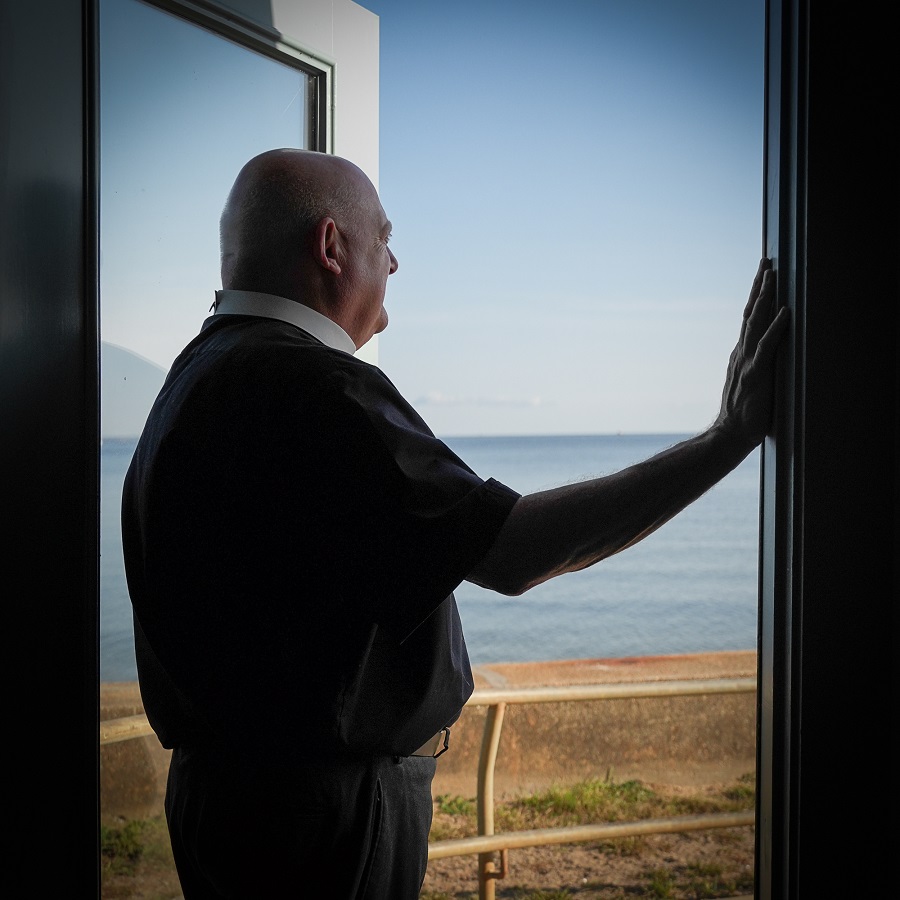
Raiche entered the priesthood at 29 and devoted 10 years to the Catholic Church. “I didn’t leave angry,” he says about his departure. “I just couldn’t represent it anymore.”
Ironically, his departure from the church led directly to a career supporting it. He moved from upstate New York to Boston to work for Trinity Fundraising Consultants, which advises Catholic churches.
Raiche worked at Trinity for six years, eventually as senior vice president, before starting his own firm, Cornerstone Fundraising. The work is secular rather than spiritual, Raiche says: “I do that as a consultant, not as a priest.” Episcopal priests can be “bivocational,” according to the church’s Title IV Canons website. They can preach and have other jobs as long as those are approved by the bishop. Catholic priests typically don’t work outside the church.
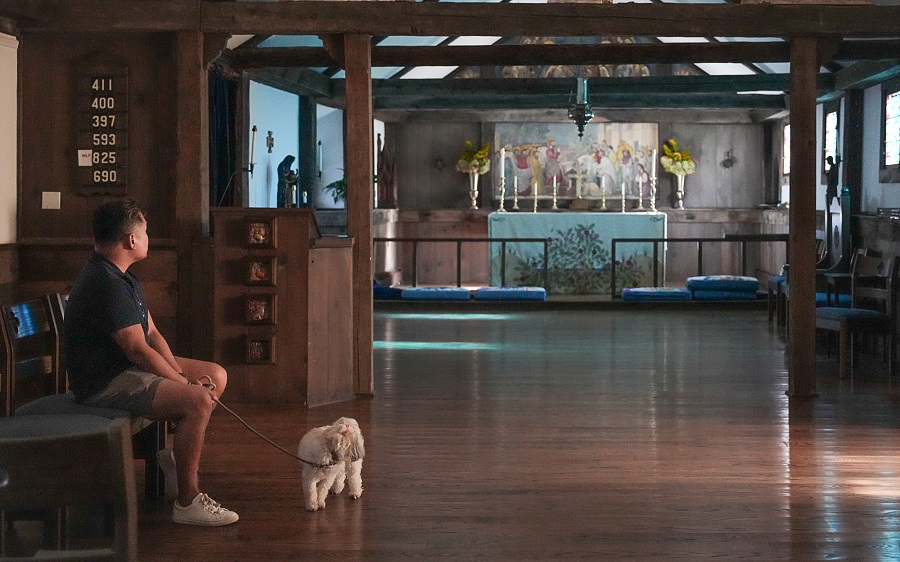
Raiche met Loren Lee at a rehearsal for a Tanglewood benefit concert in 2005. Raiche played the piano, and Lee was the guest violinist. Lee was a regular at St. Paul’s Episcopal Church in Newburyport, and Raiche soon joined him for Sunday services. In 2013, the couple had a “big church wedding” at St. Paul’s.
The Episcopal Church, Raiche says, “has a lot of what people love about the Catholic Church –– it’s just a little more inclusive.” That’s true for both clergy and congregations: women and LGBTQ people can be ordained, and priests are allowed to marry and have families. Gay parishioners are not asked to be celibate.
It wasn’t long before the rector at St. Paul’s asked Raiche to preach on weekdays. “Slowly I got back into things,” he says of returning to a pastoral role. In June 2015, Raiche was formally received into the Episcopal Church and a year later he became the rector at the Church of the Good Shepherd in Reading, where he worked until this past July.
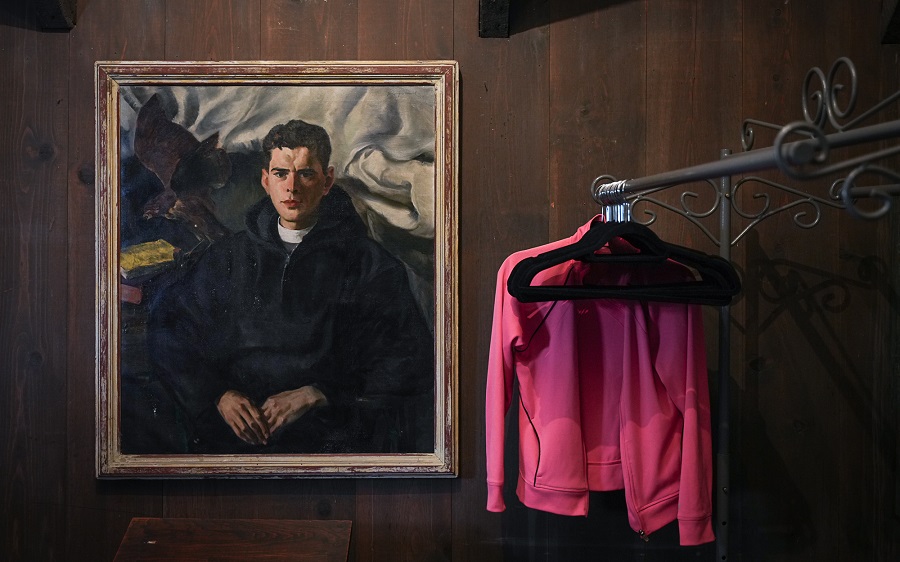
Raiche and Lee bought a condominium in Provincetown as a “getaway place” and investment property to rent in the summer. During the pandemic, they began spending more time here and attended outdoor masses at St. Mary of the Harbor. Raiche says they found a spiritual home at St. Mary, not to mention friendships: “We met all kinds of different friends during the off-season.”
Raiche says he wasn’t looking to lead a parish when the St. Mary position opened up. But he says, “When I received a call to serve the parish, my answer was an enthusiastic ‘yes.’ ”
Raiche became St. Mary’s year-round vicar in September. Now he, Lee, and their dog, Chloe, are getting settled — though with the church’s rectory, where they plan to live, undergoing renovation, and their Provincetown place rented out, the couple are still back and forth to their home in Newburyport.
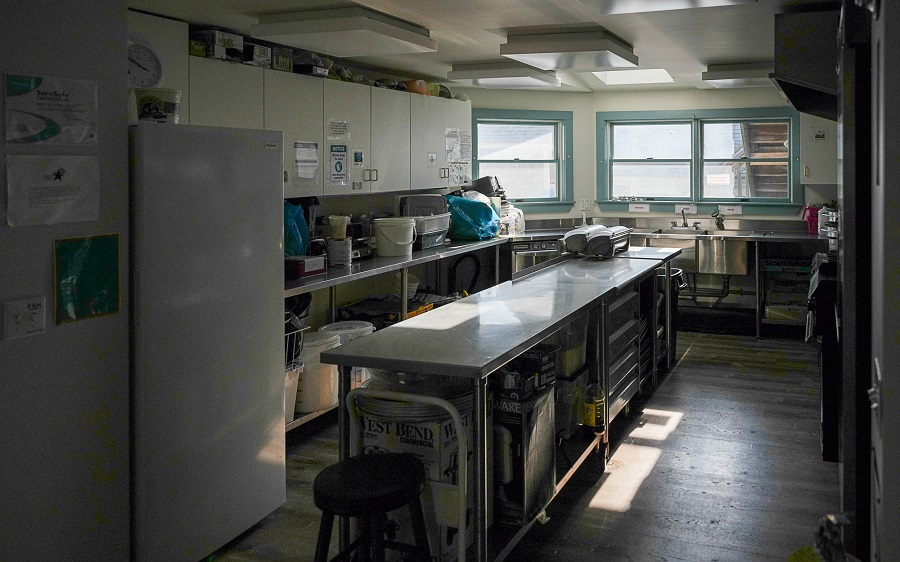
One challenge for the church, Raiche says, is not peculiar to Provincetown: how to coax people back to Mass. During Covid, he says, “a lot of people just stopped coming.”
This past summer, St. Mary opened its kitchen to the AIDS Support Group of Cape Cod, which prepared meals for its free lunch program there. Raiche is looking forward to more of that kind of community work.
His main focus is on creating an inclusive refuge for those in search of a “spiritual home,” Raiche says. “People are just looking to belong.”
